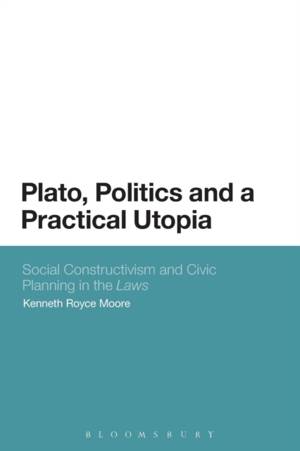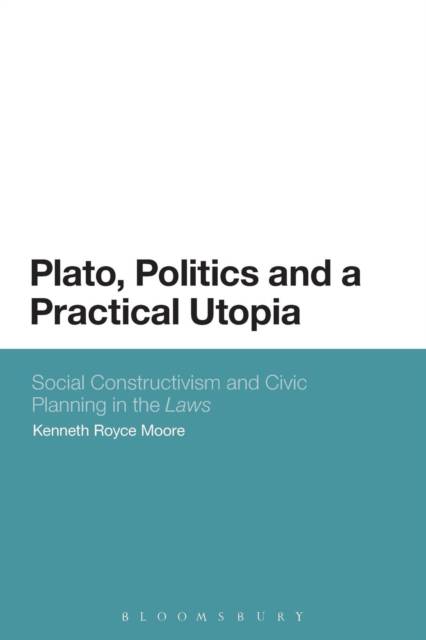
- Afhalen na 1 uur in een winkel met voorraad
- Gratis thuislevering in België vanaf € 30
- Ruim aanbod met 7 miljoen producten
- Afhalen na 1 uur in een winkel met voorraad
- Gratis thuislevering in België vanaf € 30
- Ruim aanbod met 7 miljoen producten
Plato, Politics and a Practical Utopia,
Social Constructivism and Civic Planning in the 'Laws'
Kenneth Royce MooreOmschrijving
Dealing with themes of urban planning, constitutionalism, utopianism and social construction theory, this book analyzes the city of Magnesia, Plato's second-best city-state in the Laws, as if it were an actual ancient city-state. The book details the demographics, economics, military capabilities and polity of Magnesia using (post)modern critical theory and contemporary data on ancient city-states.
Examining the key features of the proposed city-state in detail, Kenneth Royce Moore considers Plato's proposed military as well as his invention of national service, and compares this with known militaries of the era. The author demonstrates that economic growth is not its priority, highly restricted with an aim toward stability rather than expansion. Moore also considers the Magnesian political system in the light of existing polities of the era, concluding that Magnesia will have a strikingly different form of government than any other actual city-state in antiquity, albeit derived in no small part from Athenian, Cretan and Spartan traditions. This book puts "flesh on the bones" of Plato's fictional utopia and reveals how surprisingly practical it could have been.
Specificaties
Betrokkenen
- Auteur(s):
- Uitgeverij:
Inhoud
- Aantal bladzijden:
- 144
- Taal:
- Engels
Eigenschappen
- Productcode (EAN):
- 9781472505804
- Verschijningsdatum:
- 18/07/2013
- Uitvoering:
- Paperback
- Formaat:
- Trade paperback (VS)
- Afmetingen:
- 156 mm x 234 mm
- Gewicht:
- 213 g

Alleen bij Standaard Boekhandel
Beoordelingen
We publiceren alleen reviews die voldoen aan de voorwaarden voor reviews. Bekijk onze voorwaarden voor reviews.








